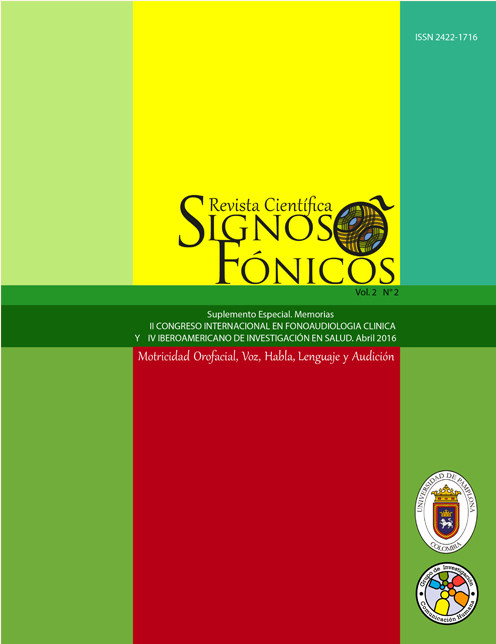Application of clinical assessment and early care of innate cerebromotor potential in live newborns with neonatal risk factors in the neonatology service of the San Vicente de Paul General Hospital.
DOI:
https://doi.org/10.24054/rcsf.v2i2.2118Keywords:
Innate Motor Potential, Oral and Facial Motor Skills, Early InterventionAbstract
Introduction: Application of Clinical Assessment and Early Care of Innate Cerebromotor Potential in Live Newborns with Neonatal Risk Factors in the Neonatology Service in order to detect early manifestations of Neuromotor Disorders and initiate Therapeutic Habilitation of Cerebromotor Functions in Early Intervention. The secondary objective was the Detection and affirmation of motor normality in live newborns with risk factors, helping the pediatric medical diagnosis and identifying frequent motor disorders such as infantile cerebral palsy qualitatively in the evolution of the present disorders, and quantitatively in the functional evolution. Method: A prospective longitudinal mixed panel study was conducted, collecting data over time in the years 2013-2014 and 2015. The sample consisted of 1,042 neonates in orofacial motor development, 422 neonates in innate motor potential, and 215 premature neonates in Early Care and Intervention follow-up. Neonates underwent clinical evaluation of cerebromotor potential (A and B). Initially, transient or pathological disorders were assessed using the Guy Tardieu Scale, and early intervention techniques were then applied. Results: Of a total of (“n”=215) in 90.69% of (“n”=195) the presence of Transient Cerebromotor Disorders was detected, and with Early Care and Intervention from neonatal hospitalization and follow-up in outpatient consultation, Cerebromotor Potential was enabled and improved, reaching stages of neuromotor development corresponding to normality, and in 9.31% of (“n”=20) pathological alterations such as Infantile Cerebral Palsy were found. Conclusion: Of the 100% of cases and follow-up in the study, 96.74% benefited from the Application of Clinical Evaluation described by Le Métayer, inciting support for the Therapeutic process of Early Care and Intervention in Neurodevelopment, and 3.26% did not have an advantageous evolution due to presenting Permanent Neuromotor disorders.
Downloads
Downloads
Published
How to Cite
Issue
Section
License
Copyright (c) 2016 Marco Antonio Montesdeoca Bastidas

This work is licensed under a Creative Commons Attribution-NonCommercial-NoDerivatives 4.0 International License.











